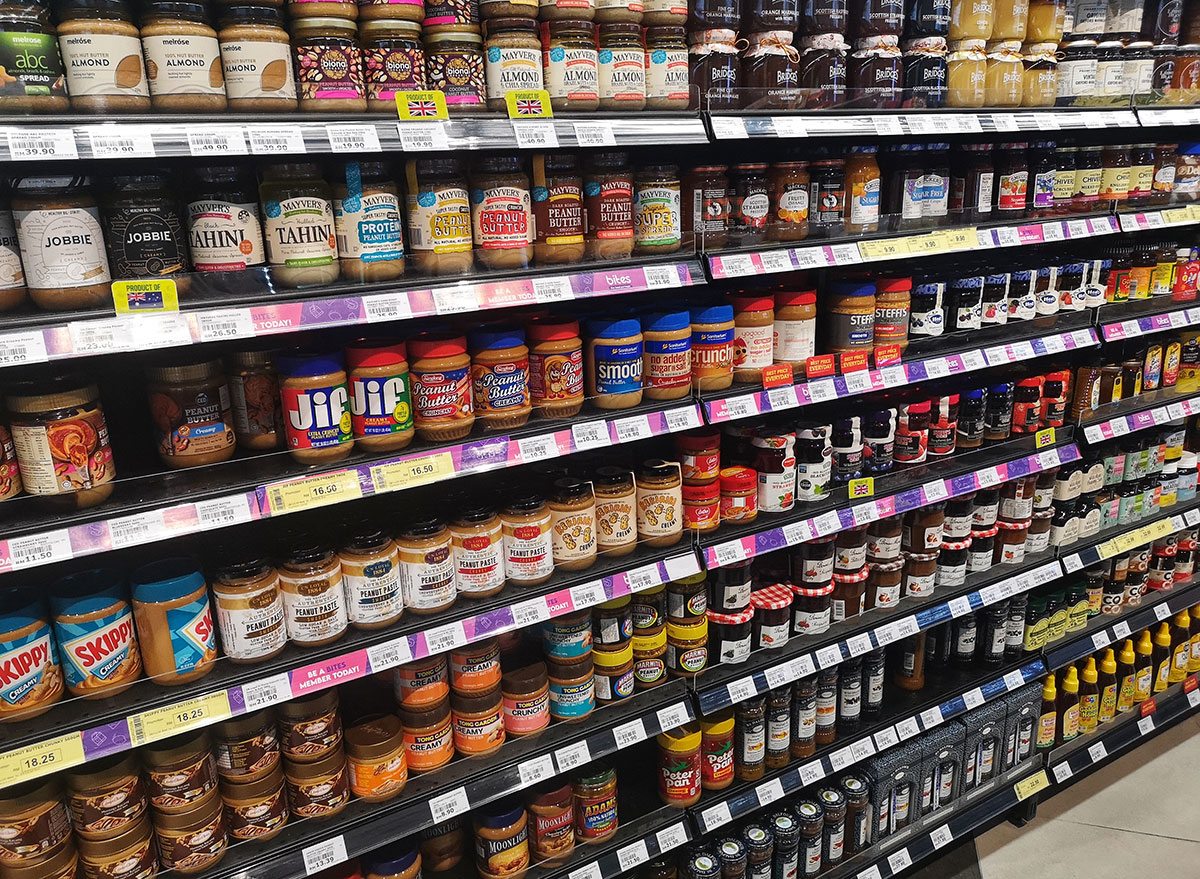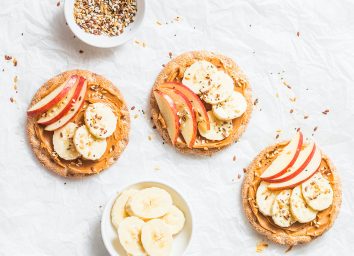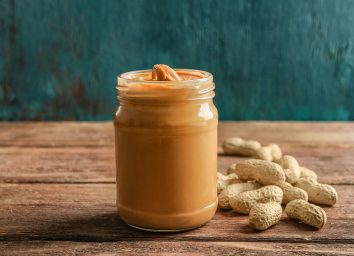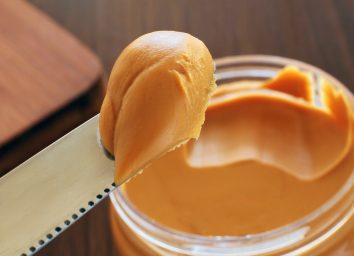The #1 Peanut Butter to Eat, According to a Dietitian

If I was given a magic dietitian wand, I would use it to remove all inflammatory oils from our grocery stores—starting with the peanut butter aisle. Inflammatory oils, like vegetable oil, harm our health and contribute to weight gain.
Conventional nut butter happens to be alarmingly high in vegetable oils as they improve its shelf life and keep the nut butter’s natural oil from separating on top. This looks good for company profit margins but is not so great for our waistlines. The food industry likes to sneak additives into our food to ensure it is shelf-stable as long as possible and tastes more palatable. The food industry can be sneaky, forcing us as consumers to get savvy. Learning to navigate reading food labels and packaging is one of the best ways to empower yourself as a savvy consumer.
Here’s what you need to know to find the best peanut butter to eat, and for even more healthy tips, be sure to check out our list of The 7 Healthiest Foods to Eat Right Now.
What to look for when reading peanut butter labels
Naturally, the best peanut butter on the market is devoid of added oils and sugar. Many traditionally packaged peanut butter will contain fully hydrogenated oil on the list of ingredients. These oils are specifically high in polyunsaturated omega-6 fats from vegetable oils. Americans are notorious for overconsuming omega-6 fats and under consuming omega-3s, an imbalance that leads to an increased risk of weight gain. To include a variety of omega-3s in your diet, surf this list for more.
Here’s more on this sneaky ingredient in peanut butter you should know about!
Use this easy checklist to assess your peanut butter quality.
When I peruse the nut butter aisle, I appraise peanut butter by two simple criteria: the number of ingredients and oil in the jar.
First, flip the jar to look at the label. The ingredients list will tell you everything you need to know. A high-quality peanut butter will have no more than two ingredients: peanuts and salt!
Next, ensure high quality by purchasing a brand of peanut butter with the oil on top. This is natural peanut oil that has separated due to gravity while sitting on the shelf. Peanut butter that doesn’t have oil on top generally has added polyunsaturated oils and added sugar as an emulsifier to prevent the peanut butter from separating. Once these criteria have been met, I am more than happy to oblige by selecting this nut butter for my pantry.
My personal go-to brand that checks all the boxes is Smucker’s Natural Peanut Butter. Just know, it will take a little elbow grease to reincorporate the oil! Once you stir it up, you can store it in the fridge to prevent it from separating again.








